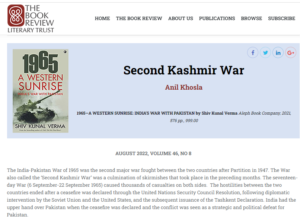
Pic Courtesy: Pond5
- The first ship carrying Ukrainian grain exports has set off from the port of Odessa for Lebanon as part of the deal negotiated between Russia and Ukraine.
Comments: A good beginning – The process will ease off some of the world food crisis.
- Russian missile strikes on Mykolaiv, a port city in the south, killed Oleksiy Vadatursky, one of Ukraine’s richest businessmen and biggest exporters of grain.
Comments: Is there a message or connection between the agreement to allow the export of grain and this act?
- Nancy Pelosi, the speaker of America’s House of Representatives, landed in Singapore, the first stop of a tour through Asia. Her delegation also plans to visit Malaysia, South Korea, and Japan. There was no mention of whether she would travel to Taiwan as initially suggested. Chinese officials earlier threatened “strong and resolute measures” should she stop on the island. If she does, Ms Pelosi would be the highest-ranking American official to visit Taiwan since 1997.
Comments:
- China’s strongly worded threat – “those who play with fire, perish by it”.
- Wait and watch for–
- Who will blink?
- Brinkmanship will go up to what extent?
- Is it a Chinese red line?
- On Russian Navy day President Vladimir Putin marked by announcing that the navy would receive the “formidable” hypersonic Zircon cruise missiles in the coming months.
Comments: Hypersonic weapons have arrived, heralding a paradigm shift in warfare (Sply Air Defence and Ballistic Missile Defence).
- According to reports, the People’s Liberation Army (PLA) of China is actively recruiting Tibetans and Nepalis from the Tibet Autonomous Region (TAR) who are well-versed in Hindi for both interpretation and intelligence-gathering jobs along the Line of Actual Control. Officials were also stated to have visited colleges and universities in China in a large-scale drive to search for Hindi graduates for recruitment for LAC jobs in the PLA.
Comments: For sure, Hindi-speaking personnel must be present in all the Sino – Indian meetings.
- It is reported that China has approx. 7,000 active Tibetan military personnel in its People’s Liberation Army (PLA) in Tibet Autonomous Region (TAR). Around 1,000 Tibetans, including about 100 females, are enrolled in Special Tibetan Army Units.
Comments: Part of the process to involve few of the Tibetans in the mainstream and to change the demography of TAR.
- Chinese manufacturing company has set up its office in Pakistan-occupied Kashmir (PoK). This company has been renovating and building new bunkers for the Pakistan Army. Chinese companies have done construction in PoK in the past too, but this is the first time such a project has been taken up along the LoC.
Comments:
- Shameful – Pakistan is not capable of making even bunkers.
- The presence of China in the POK is increasing.
- The bilateral issue of POK is gradually becoming Trilateral.
- China’s People’s Liberation Army recently tested an advanced Multiple Launch Rocket System (MLRS) at an altitude of more than 5,300 metres in the Xinjiang Region close to the Indian border that could hit critical Indian military bases. China’s state media reported that China is likely to deploy the PHL-16 MLRS on the Sino-Indian border.
Comments: Classic example of Strategic signalling and strategic coercion.
- China’s PLA has carried out a military exercise with Z-10 attack helicopters for the first time over Pangong Lake.
Comments: The air activity along the LOC is gradually changing. Aerial muscle flexing is becoming a part of the border incursions and standoffs.
- Myanmar’s military junta extended a state of emergency across the country by six months. The regime has ruled with emergency powers since overthrowing the democratically elected government of Aung San Suu Kyi in February 2021.
Comments: It is a wait and watch for the return of democracy. Myanmar is important for India.
Bottom Line
There is never a dull moment in the world.
Question
Will nations ever stop fighting with each other?
Suggestions and value additions are most welcome
For regular updates, please register here
Subscribe
References and credits
To all the online sites and channels.
Disclaimer:
Information and data included in the blog are for educational & non-commercial purposes only and have been carefully adapted, excerpted, or edited from sources deemed reliable and accurate. All copyrighted material belongs to respective owners and is provided only for purposes of wider dissemination.


